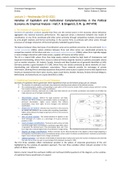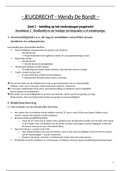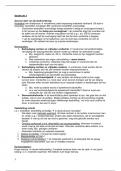Overig
Summary Articles Production Management
- Instelling
- Tilburg University (UVT)
Summaries of the articles for Production Management, the college slides are also covered here (but also on the summary of the chapters of the book). Following papers are included: Hall & Gingerich (2009), Guest Lecture Kaizen Institute, Doering & Suresh (2016), Slides Lecture 3 Production Scenar...
[Meer zien]














